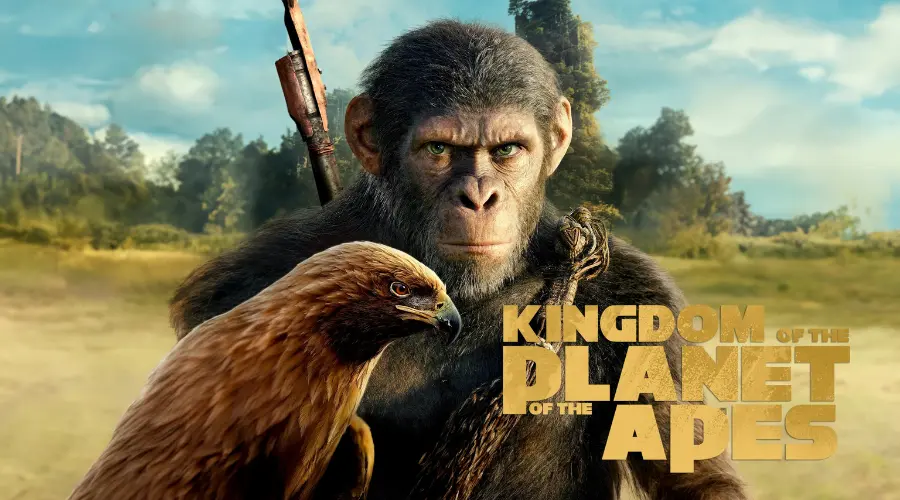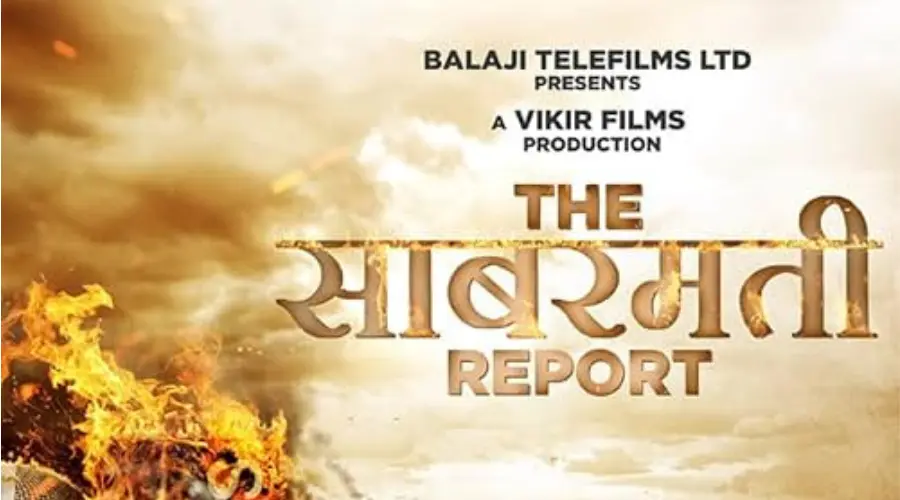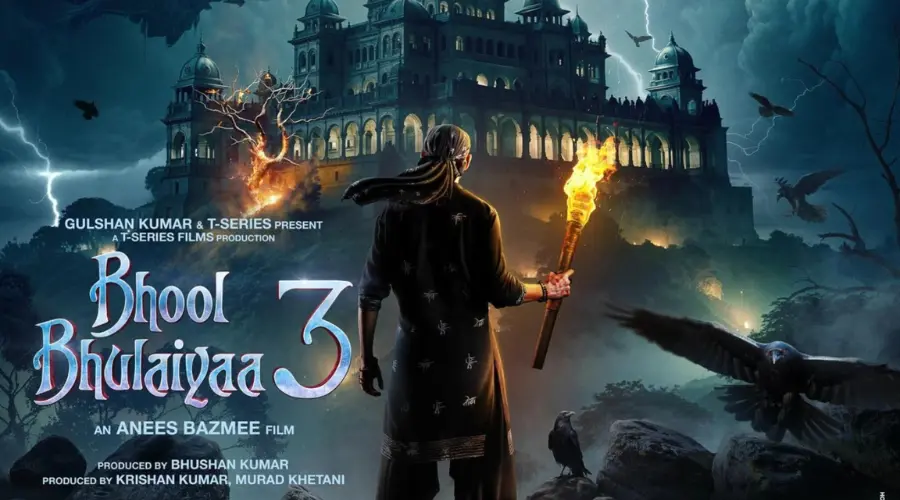Kingdom of the Planet of the Apes Movie Review: The latest installment in an excellent series finds mythology turning into power
WHEN IT WAS first announced that the Planet of the Apes franchise was going to get the reboot treatment back in the now-Jurassic era of 2011, you could feel a familiar cynicism kick in Great, another recognizable intellectual property getting trotted out for a quick cash grab, just in time for a corporate quarterly report. We’d finally washed the ashy taste of that ill-advised Tim Burton remake from 2001 out of mouths, and now Warners was going back to the ’70s pop culture well, ready to ransack musty nostalgia from chimpan-A to chimpan-Z. Somewhere out there, a pasty Gen-X fanatic pounded the floor of his apartment in front of his rare, still-boxed Dr. Zaius collector’s-edition action figure and screamed, “You’ll blow it all up! Damn you! Damn you all to hell!!!”
What we got instead was the first in a trilogy of future shocks — Rise of the Planet of the Apes; 2014’s Dawn of the Planet of the Apes; and 2017’s War for the Planet of the Apes — that reimagined a world beset by monkey business in a smart, savvy and still commercially marketable way. And the key to this new series was, inarguably, Caesar. As voiced and acted by Andy Serkis, in combination with cutting-edge performance-capture FX from Peter Jackson ‘s WETA Digital Workshop, this animal went on a hero’s journey from every-chimp to liberator, leader to martyr. Caesar became both the conscience of his species and its spokesperson, empowering his fellow apes while attempting to bridge the gap between primates and people. Thanks to Serkis, this character became not just a focal point for the franchise but its emotional center, its soul. The supreme irony is that an actor burdened by technology ended up blessing an entire trilogy about simian supremacy with a sense of humanity. It’s truly one of the great, extended screen performances of the 21st century.
Kingdom of the Planet of the Apes, the fourth installment in — what are we calling this, the Apeverse? — begins where War ends, with the mighty Caesar being given a warrior’s farewell, funeral pyre and all. We then skip forward “many generations later,” and within minutes of entering this brave new backwards world, you start to wonder if the void left by this character’s absence simply can’t be filled. There will be fresh heroes to cheer, fresh villains to hiss at, fresh metaphors about power and corruption and history repeating itself to scratch your chin over. Yet a curious sense of staleness starts to set in even before the first act of director Wes Ball’s entry pits ape against ape. And without a compelling chimp for all seasons like Caesar acting as a centrifuge for all of the allegorical bluster, and narrative bathos, and set pieces in which pixelated gorilla bashes pixelated orangutan while a pixelated tsunami threatens to wash them all into pixelated oblivion, you’re essentially left with nothing but Blockbuster 101 grandstanding. Welcome to the emptiest of monkeyhouses.
Our good guy this time around is Noa (Owen Teague), a young chimp who’s part of a tribe living in the vegetation-covered ruins of California. His father is a “master of birds,” who has trained eagles to help them hunt; Noa and his best friends, Anaya (Travis Jeffery) and Soona (Lydia Peckham) have just gathered nest eggs, in the hope of nurturing their bird's of prey. Returning home, they stumble across a swath of cloth with an odd smell. They believe it belongs to an “Echo,” their word for the human scavengers who live in the forbidden “valley beyond.”
Noa brings this garment back to his dad and the village elders. He soon spies its owner, a feral young woman (Freya Allen) lurking around the encampment. Then a rival group of apes, led by the brute Sylva (Eka Darville), attack the tribe and burn everything to the ground. Noa is left for dead, and whatever friends and loved ones who have survived are led away, to be used as slave labor for …something. He begins to follow the tracks of these aggressors, vowing revenge
Along the way, he meets a wise orangutan named Raka (Peter Macon). This older primate is part of the Order of Caesar, a group that treats the long-dead hero’s words as gospel and studies the ancient human texts known as “books.” He, too, is familiar with these warlike apes, having just lost what appears to be a life partner during a similar massacre. (They attacked my village, Noa tells him. “He was my village,” Raka says, gesturing to a skeleton sitting on a pyre.) Soon, the girl joins them. The orangutan names her Nova, after the mute child Caesar rescues in War. Her real name is Mae, and she not only talks but is part of a settlement hoping to return to the days when apes and people lived side by side. She also wants to find these bad guys for reasons of her own.
The problem is: The bad guys are very much after her as well. And when she and Noa are captured, they’re led along a beach in a blatant callback to the 1968 original’s climax. No Lady Liberty is awaiting them, but there is a rusty, wrecked battleship that is the equivalent of a Bond villain’s lair. This is where a demagogue named Proximus Caesar (Kevin Durand) reigns supreme. He’s twisted the words of their simian savior to his ends, turning “Apes, Strong, Together!” into a campaign motto. Noa discovers that this would-be great ape is obsessed with a giant vault guarded by impenetrable steel doors. It’s filled with human weapons and tech. Caesar 2.0 laments that Darwinism takes so damned long. But with the treasures that lay within that sealed-off area, he figures he can catch up far more quickly to Homo sapiens in terms of destroying everything and everyone in his way.
There’s more, from Mae having a secondary agenda to being trapped there beside Noa to William H. Macy dropping by to play the future version of a Vichy government official during WWII. Blows are thrown, sacrifices are made, last-minute rescues are made and any number of CGI disasters befall our heroes before a semblance of order is put back in place. The notion of a prophet’s teaching being perverted for a power-mongers personal gain isn’t exactly new, but it will strike a chord with anyone familiar with organized religion and the past 50 years of the G.O.P. And while the trilogy used the concept behind Pierre Boulle’s 1963 cult novel and that original five-movie run to imagine how the ape revolution played out, Kingdom is the first of the reboots to essentially treat the monkeys-are-our-masters scenario as a given. It’s close kin to that 1968 Charlton Heston ground-zero for the series, in every way except quality, excitement, and getting you invested in any sort of outcome.
To put it bluntly: It’s a big evolutionary step backward for a franchise that distinguished itself from the barrel of blockbuster I.P. crowding the multiplex and your pop-cultural bandwidth a little over a decade ago and had kept up a consistency that felt rarer and rarer among multi-movie universes. Kingdom of the Planet of the Apes may bring its battle against humans and apes to something like a draw here, but it certainly loses the war over maintaining your interest. Serkis served as a consultant here, but you’d kill to have him in front of the camera, casting his unique spell of performance-capture magic again. Given what we’ve got left without him leading the charge, the only thing concerning viewers regarding this Planet of the Apes entry is how quickly you can escape it.







Comments (0)